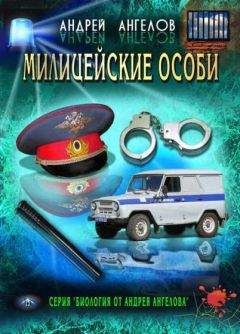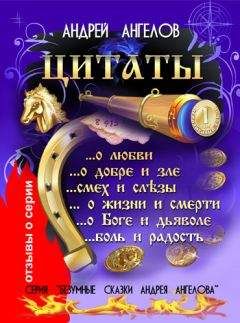Peake, Mervyn - 02 Gormenghast
It was mid-day. Against a dark sky, Gormenghast Mountain, for all its ruggedness, was swathed as white as wool. Steerpike stared through it. In a quarter of an hour he would be on his way to the stables, where the horses would be lined up for his inspection. It being the anniversary of the death of a nephew of the fifty-third Countess of Groan, in his day a daring horseman, he would see that the grooms were in mourning and that the traditional equine masks were being worn at the correct angle of dejection.
He held up his hands and placed them before him against the window pane. Then he spread them out like starfish, and examined his nails. Between the scarlet fingers and all about them was the white of the distant snow. It was as though he had placed his hand upon white paper. Then he turned and crossed the room to where his cape was folded over the back of a chair. When he had left the room and had turned the key and was on his way down the stairway, his mind turned for a moment to the Twins. It had been an untidy business in many ways, but perhaps it was as well that circumstances beyond his control had forced the solution. Even at the time of his burns, the re-stocking of their larder had been long overdue. By now they could no longer be alive.
He had gone through his papers, and had refreshed his memory as to exactly what provisions they were likely to have had left on the day of his burning, and from his none too simple calculations, he deduced that they must have died from starvation on about that day when, swathed like a lagged pipe in frosty weather, he first rose from his sick bed. In point of fact they died two days later.
FORTY SEVEN
I
As the days went by, Titus was becoming more and more difficult to control. In the long dormitories where after dark the boys of his own age would light their shielded candles, squat in groups, perform strange rites or eat their pilfered cakes, Titus was no watcher of the scene. He was no mere watcher from the safety of his bed, when, in fierce and secret grapple, old scores were settled in deathly silence while, in his cubicle by the dormitory door, the formidable janitor slept like a crocodile upon his back. The erratic breathing of this man, his tossings and turnings, his very wheezings and mutterings were an open book to Titus and his confederates. They all conveyed a certain 'depth' of sleep, which at its deepest was shallow enough. But it was silence that they feared, for silence meant that his eyes were open in the darkness.
As sacred as the fact that there had always been an Earl of Gormenghast and always would be, and that when the time came he would be virtually unapproachable, a man out of range both socially and for reason of his intrinsic 'difference' - as sacred as all this, was the tradition that as a boy the Earl of Gormenghast must be in no way treated as something apart. It was the pride of the Groans that their childhood was no time of cotton-wool.
As for the boys themselves, they found little difficulty in putting this into practice. They knew that there was no difference between themselves and Titus. It was only later that they would think otherwise. And in any case what a child may become in his later years is of little interest to his friends or his foes. It is the world of here and now that matters most. And so Titus fought with the rest in the breathless dormitory - and from time to time was caught out of his bed and was caned by the janitor.
He took the risk and he took the punishment. But he hated it. He hated the ambiguity of it all. Was he a lord or an urchin? He resented a world in which he was neither one thing nor another. That his early trials would fit him for his responsibilities in later life, made no appeal to him. He was not interested in his later life and he was not interested in having responsibilities. Somehow or other the whole thing was unfair.
And so he said to himself: 'All right! So I'm the same as anyone else, am I? Then why do I have to report to Steerpike every evening, in case I'm lost? Why do I have to do extra things after classes - when none of the others have to? Turning keys in rotten old locks. Pouring wine all over turrets - walking here and there until I'm tired! Why should I do all this extra if I'm not any different? It's a rotten trick!'
The professors found him difficult, wayward, and on occasions, insolent. All except Bellgrove, for whom Titus had a fondness and an inexplicable respect.
II
'Are you thinking of doing any work this afternoon, or were you planning to spend it in chewing that end of your pen, dear boy?' asked Bellgrove leaning forward over his desk and addressing Titus.
'Yes, sir!' said Titus with a jerk. He had been far away, in a day dream.
'Do you mean, "Yes, sir, I'm going to work" or "Yes, sir, I'm going to chew my pen", dear boy?'
'O 'work', sir.'
Bellgrove flicked a lock of his mane back over his shoulder with the end of his ruler.
'I 'am' so pleased,' he said. 'You know, my young friend, that one day when I was about your age, I was suddenly taken with the idea of concentrating upon the paper which my old schoolteacher had set me. I don't know what gave me the idea. I had never thought of doing such a thing before. I had 'heard' of people who had tried it, you know - of paying attention, of putting their minds to the work in hand - but I had never thought of doing it myself. But - and here you must listen, my dear boy - what happened? I will tell you. I found that the paper which my dear master had set me was quite, quite simple. It was almost an insult. I concentrated more than ever. When I had finished I asked for more. And then more again. All my answers were quite perfect. And what happened? I became so fascinated at finding I was so clever, that I did too much and 'became ill'. And so I warn you - and I warn the whole class. Take care of your health. Don't overdo it. Go slow - or you may have a breakdown just as I had, long ago, when I was young, dear boys, and ugly, just as you are, and just as dirty, too, and if you haven't got your work finished by four o'clock, Master Groan, my dear child, I shall be forced to keep you in until five.'
'Yes sir,' said Titus and at that moment he felt a dig in the back. Turning he found that the boy behind him was passing him a note. He could not have chosen a much worse moment for it, but Bellgrove had closed his eyes in a resigned and lordly way. When Titus unfolded the scrap of paper, he found it was no message but a crude caricature of Bellgrove chasing Miss Irma Prunesquallor with a long lasso in his hand. It was very feebly drawn and not particularly funny, and Titus, who was in no mood for it, felt suddenly angry, and screwing it up threw it back over his shoulder. This time Bellgrove's attention was caught by die pellet.
'What was that, dear boy?'
'Just a screwed up bit of paper, sir.'
'Bring it up here, to your old master. It will give him something to do,' said Bellgrove. 'He can work away at it with his old fingers, you know. After all there is nothing much he can do until the class ends.' And then musing aloud, 'O babes and sucklings... babes and sucklings... how tired of you your old headmaster gets.'
The pellet was retrieved and passed to Titus who got up from his desk. And then suddenly when he had approached to within a few feet of the headmaster's desk he put the screwed-up drawing into his mouth, and with a gulp, swallowed it.
I've swallowed it, sir.'
Bellgrove frowned, and an expression of pain flitted across his noble face. 'You will stand on your desk,' he said. 'I am ashamed of you, Titus Groan. You will have to be punished.'
When Titus had been standing on his desk for a few minutes he received another tap upon the back. He had already been in trouble through the stupidity of the boy behind and in a flash of anger 'Shut up!' he cried, and swinging around at the same instant found himself staring at Steerpike.
The young Master of Ritual had come silently through the door of the schoolroom. It was his duty to make a periodic round of the classes, and it was an understood thing that in this official capacity it was not for him to knock before he entered - only a few boys had noticed Steerpike's arrival - but the whole class turned at the sound of Titus' voice.
Gradually it dawned upon the class that the reason for the stiff, frozen position that Titus was in, his head turned sharply over his shoulder, his body swivelled around on the narrow pivot of his hips, his hands clenched, his head lowered angrily - that the reason for his tenseness was that his 'shut-up' must have been addressed to none other than the man with the skewbald face, Steerpike himself.
Standing upon the lid of his desk Titus was in the unusual position of looking down at the face of this authority who had suddenly appeared as though out of the floor, like an apparition. The face looked up at him, a wry smile upon the lips, the eyebrows raised a little, and a certain expectancy in the features, as though denoting that although Steerpike realized that it was impossible for the boy to have guessed who it was that had tapped him on the back, and was therefore guiltless of insolence, yet, an apology was called for. It was unthinkable that the Master of Ritual should be spoken to in this way by anyone - let alone a small boy - whatever his lineage.
But no apology came. For Titus, directly he realized what had happened - that he had cried ''shut-up'' to the arch-symbol of all the authority and repression which he loathed - knew instinctively that this was a moment in which to dare the blackest hell.
To apologize would be to submit.
He knew in the darkness of his heart's blood that he must not climb down.
In the face of peril, in the presence of officialdom, age-old and vile, with its scarlet hands, and its hunched shoulders, he must not climb down. He must cling to his dizzy crag until, trembling but triumphant in the enormous knowledge of his victory, he stood once more upon solid ground, secure in the knowledge that as a creature of different clay he had not sold his birthright out of terror.
But he could not move. His face had gone white as the paper on the desk. His brow was sticky with sweat and he was heavy with a ghastly tiredness. To cling to his crag was enough. He had not the courage to stare into the dark red eyes that, with the lids narrowed across them, were fixed upon his face. He had not the courage to do this. He stared over the man's shoulder, and then he closed his eyes. To refuse to say he was sorry was all that his courage could stand.
And then, all at once he felt himself to be standing at a strange angle, and opening his eyes he saw the rows of desks begin to circle in formation through the air and then a far voice shouted as though from miles away as he fell heavily to the floor in a dead faint.
FORTY-EIGHT
'I am having the most moving time, Alfred. I said I am having the most moving time - are you listening or not? O it's too galling the way a woman can be courted so splendidly, so nobly by her lover, only to find that her own brother is about as interested as a fly upon the wall. Alfred, I said a fly upon a wall!'
'Flesh of my flesh,' said the Doctor after a pause (he had been lost in rumination) 'what is it that you want to know?'
''Know',' answered Irma, with superb scorn. 'Why should I want to know anything?'
Her fingers smoothed the back of her iron-grey hair, and then of a sudden, pounced upon the bun at the nape of her neck where they fiddled with an uncanny dexterity. It might have been supposed that her long nervous fingers had an eye apiece so effortlessly did they flicker to and fro across the contours of the hirsute knob.
'I was not asking you a question, Alfred. I sometimes have thoughts of my own. I sometimes make 'statements'. I know you think very little of my intellect. But not everyone is like you - I can assure you. You can have no idea, Alfred, of what is being done to me. I am being drawn out. I am finding treasures in myself. I am like a rich mine, Alfred. I know it, I know it. And I have brains I haven't even used yet.'
'Conversation with you, Irma', said her brother, 'is peculiarly difficult. You leave no loops, dear one, at the end of your sentences, nothing to help your loving brother, nothing for his ever willing, ever eager, ever shining hook. I always have to start afresh, sweet trout. I have to work my passage. But I will try again. Now, you were saying...?'
'O Alfred. Just for one moment, do something to please me. Talk 'normally.' I am so tired of your way of saying things with all its figures of eight.'
'Figures of 'speech'! speech! speech!' cried the Doctor, rising to his feet and wringing his hands, 'why do you always say figure of 'eight'? O bless my soul, what is the matter with my nerves? Yes, of course I'll do something to please you. What shall it be?'
But Irma was in tears, her head buried in a soft grey cushion. At last she raised it and taking off her dark glasses, 'It's too 'much',' she sobbed. 'When even one's brother snaps one up. I did trust you!' she shouted, 'and now 'you're' letting me down too. I only wanted your advice.'
'Who has let you down?' said the Doctor sharply. 'Not the Headmaster...?' Irma dabbed her eyes with an embroidered handkerchief the size of a playing card.
'It's because I told him his neck was dirty, the dear, sweet lord...'
''Lord'!' cried Prunesquallor, 'you don't call him 'that', do you?'
'Of course not, Alfred... only to myself... after all he is my lord, isn't he?'
'If you say so,' said her brother, passing his hand across his brow. 'I suppose he could be anything.'
'O he is. He is. He's anything - or rather, Alfred, he's everything.'
'But you have shamed him, and he feels wounded - proud and wounded, is that it, Irma, my dear?'
'Yes, O yes. It is that exactly. But what can I 'do'? What can I 'do'?' The doctor placed the tips of his fingers together.
'You are experiencing already, my dear Irma,' he said, 'the stuff of marriage. And so is he. Be patient, sweet flower. Learn all you can. Use what tact God gave you, and remember your mistakes and what led up to them. Say nothing about his neck. You can only make things worse. His resentment will fade. His wound will heal in time. If you love him, then simply love him and never fuss about what's dead and gone. After all you love him in spite of all your 'faults', not 'his'. Other people's faults can be fascinating. One's own are dreary. Be quiet for a bit. Don't talk too much and can't you walk a little less like a buoy in a swell?'
Irma got up from her chair and moved to the door. 'Thank you, Alfred,' she said and disappeared.




